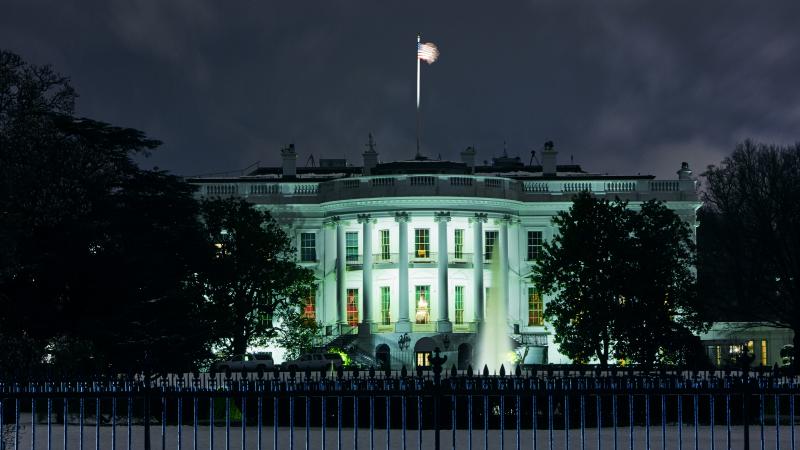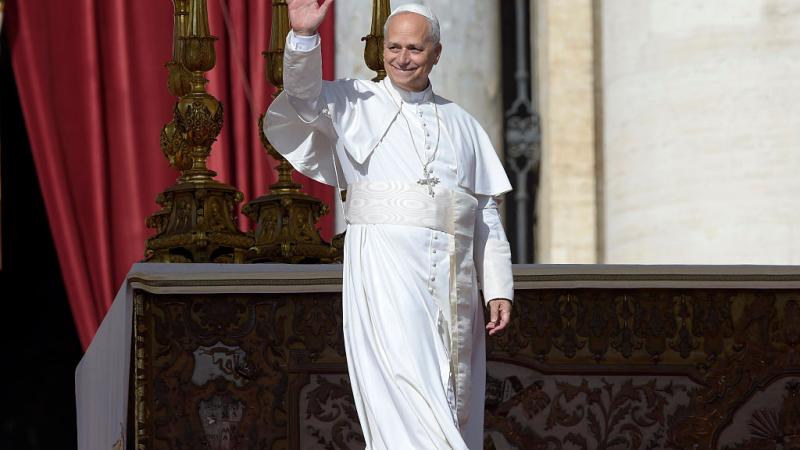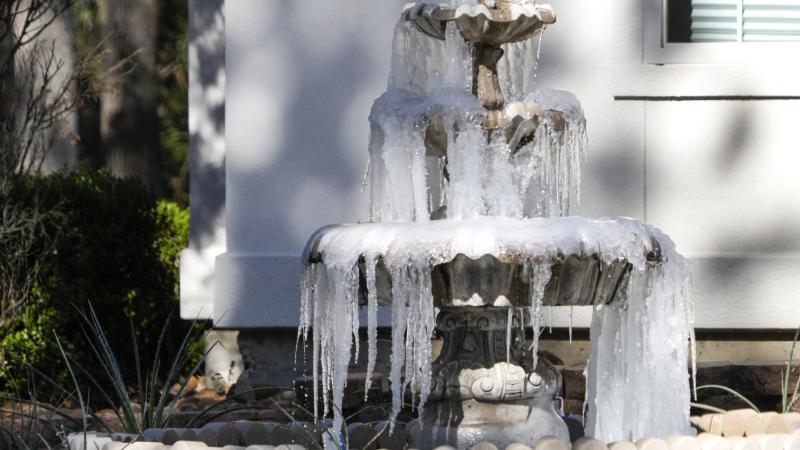Alaska Airlines, union face hostile judges for treatment of Christian workers: 'Really bad'
9th Circuit U.S. Court of Appeals quotes officials belittling religious beliefs of flight attendants who challenged its support for LGBTQ Equality Act before firing them.
Christian flight attendants fired by Alaska Airlines after privately challenging its support for sweeping federal LGBTQ legislation hit a brick wall with a federal judge nominated by former President Jimmy Carter, who was so unimpressed by their evidence of religious discrimination by the company and Association of Flight Attendants that she dismissed their case with prejudice.
Fifteen months later, a three-judge panel of the 9th U.S. Circuit Court of Appeals suggested at oral argument that U.S. District Judge Barbara Rothstein had badly botched the case and a jury should decide the matter, repeatedly warning lawyers for the company and union against overconfidence in their interpretation of evidence.
The Seattle-based carrier also faces a tough precedent from another recent 9th Circuit decision. A panel led by Democratic nominees reinstated a lawsuit against an Oregon school district by Christian educators who were fired for lobbying colleagues against a proposed gender identity policy and making an accompanying video lacking their affiliation.
Nominated by President Barack Obama and President Donald Trump, the three appellate judges judges earlier this month read aloud officials' quotes that they said a jury could interpret as contempt for the religious beliefs of Lacey Smith and Marli Brown, and as tacit agreement between Alaska and the union that the plaintiffs would not receive a robust defense. The messages in question were expressed on an internal message board.
The panel emphasized that Alaska Airlines invited comment from employees when it praised the Equality Act, which would open women's spaces to males on the basis of gender identity, on the Alaska World network the day it passed the Democrat-controlled U.S. House in 2021.
Communications between union leaders are "really, really bad for you," Judge Kenneth Lee, one of two Trump nominees, told AFA lawyer Ben Berger.
AFA rep Terry Taylor asked if they could "put Marli and Lacey in a burlap bag and drop them in a well," while governing body President Jeffrey Peterson said Smith's post was "reprehensible and there should be repercussions."
Smith's enigmatic reply to Alaska's statement — "do you think it's possible to regulate morality?" — consumed Obama nominee Judge Morgan Christen, who questioned how Alaska would know Smith was expressing her faith and noted she waited until she faced firing to claim religious discrimination.
Alaska Airlines human resources chief Andy Schneider responded directly to Smith that "harassment and discrimination will not be tolerated," implying that disagreeing with the airlines was punishable. The airlines lawyer, Lauren Watts, told the judges that Smith had essentially told 26,000 employees "all LGBTQ individuals are immoral," which constitutes "discriminatory conduct."
But Christen still joined the Trump nominees in suggesting a jury should evaluate whether "less severe sanctions" would have sufficed, perhaps as little as removing the plaintiffs' comments from the message board with no further action.
Brown's comment was explicitly religious, asking if Alaska supports "endangering the Church, encouraging suppression of religious freedom, obliterating women [sic] rights and parental rights." Peterson told a colleague in response: "I wish fewer people would struggle so much with unifying their faith with inclusivity."
That's a "tough piece of evidence for your side," Judge Daniel Bress, the other Trump nominee, told Alaska Airlines lawyer Lauren Watts, who responded by reminding the court it's not a "super personnel department" and it shouldn't question the airline's HR decision.
All three judges challenged Watts for her "immoral" interpretation of Smith's comment. "How is that self-evidently a reasonable interpretation?" Bress asked, while Christen said it might be a "sincere question" and Lee called it a "pretty vague statement."
More tolerance for racial equity policy discussion that 'got heated'
The biggest hurdle for plaintiffs' lawyer Stephanie Taub of First Liberty Institute appeared to be convincing Judge Christen that Smith was fired on the basis of religion rather than to stop a hostile work environment against others who were outraged by Smith's comment.
Christen noted Smith was already on probation. Watts later fleshed out the specifics: Alaska gave her 30 days' unpaid suspension, its harshest penalty ever for a flight attendant, for creating a petition to "depoliticize" Alaska after it endorsed the Black Lives Matter movement, and warned her that firing would follow "anything else."
The Equal Employment Opportunity Commission recognizes moral beliefs "held with the strength" of religious beliefs to have the same legal protection. In addition, EEOC precedent on headscarves as a Muslim signal means employers can be liable for discrimination based on "unsubstantiated suspicion" an employee might be religious, Taub said.
The airline's response to a dispute over the Equality Act, both firing employees and banning religious comments on Alaska World, is clearly religious animus in light of its tolerance a week earlier when an "open discussion … got heated" about its racial equity policy, Taub said.
Judges Bress and Lee peppered Taub with questions about how far the plaintiffs' religious freedom extended — could they use an airplane's PA system to warn passengers the Equality Act harms religious freedom or keep talking about religion on Alaska World after the ban — possibly to signal their ruling would be tightly confined to the facts of this case.
Watts similarly argued this was a unique situation and did not represent Alaska Airlines banning employees from disagreeing with its policy positions, but she frustrated the panel with dogmatic interpretations of the plaintiffs' comments and the airline's editorial choices and a sweeping view of its authority over religious expression.
Asked why Alaska didn't email employees about its support for the Equality Act rather than ask them "to jump into the conversation," Watts told Christen it didn't invite them to respond "with harassing statements" about a law to give "the same rights" to LGBTQ people.
The lawyer said it didn't punish others who expressed religious concerns, but that "as long as we have religions that are not perfectly aligned with Title VII" employment protections, "we will have restrictions on religious expression in the workplace."
When Lee tried to get her to agree Alaska Airlines can't fire employees based on the nature of their religious beliefs, Watts made a distinction: It can fire them for harassing conduct "inspired by religion," such as a religious pacifist who makes harassing statements about veterans.
Jury could see union effort to save their jobs as 'insincere'
AFA lawyer Berger, whose client might face higher damages based on how the court resolves a dispute over federal preemption of state discrimination law, rephrased Watts' warning and urged the judges not to become a "super grievance panel."
He claimed the union had a "legitimate nondiscriminatory reason" for not sending the plaintiffs' grievances to arbitration — likelihood of losing — but that it "took many steps to advocate" for them, including negotiating "last chance agreements," before deciding it was a lost cause.
The institutional decision is more important than "individual comments that may have preceded that decision," Berger said, but the judges said those comments were catnip to a jury.
Union leaders were "essentially referring the plaintiffs to Alaska for discipline" before filing grievances for them and testimony showed Peterson "wasn't typically as involved" in cases as in this one, so "why couldn't a jury decide that he was going out of his way?" Bress asked. "Why couldn't a reasonable jury view [the last-chance negotiation] as insincere?"
Berger denied any union official was calling for punishment, which Taub rebutted with receipts, reading out loud their communications while spelling out crass words. "Management needs to send her bigoted a-s-s packing," one said.
Taub marveled that AFA went to arbitration for a member accused of inappropriately touching three women but thought her clients' case was unwinnable. "Employees should not be afraid of losing their jobs just because their employers don't like their religious beliefs," she said.
The Facts Inside Our Reporter's Notebook
Videos
Links
- fired by Alaska Airlines after privately challenging its support
- dismissed their case with prejudice
- oral argument
- reinstated a lawsuit against an Oregon school district
- Equality Act
- "do you think it's possible to regulate morality?"
- EEOC precedent on headscarves as a Muslim signal














